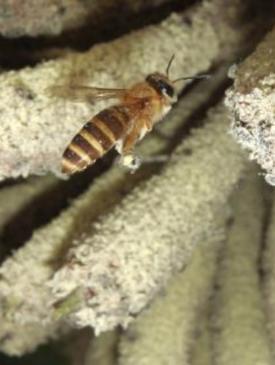Beekeeping of Stingless Bees to Strengthen Community Livelihoods around HCV Areas of Palm Oil Plantations in Central Kalimantan, Indonesia
Summary
The Roundtable on Sustainable Palm Oil (RSPO) requires that member companies protect, manage and restore High Conservation Value (HCV) areas within their plantations. Communities living around these HCV areas have the potential to develop beekeeping of stingless bees as a new livelihood alternative. This strategy is particularly pertinent in Kalimantan (Indonesian Borneo), which has been identified as having the highest level of stingless bees in the Indo-Malayan region. This training aims to provide plantation conservation managers with the knowledge and skills needed to work with local communities on promoting stingless beekeeping, both for the benefit of biodiversity and livelihoods.
Content
Day 1
- Opening ceremony
- Pretest to understand the starting knowledge level of the participants
- Biology of stingless bees: taxonomy, physiology and ecology
- Potential economic value and ecological value of stingless bees
- Basic knowledge of meliponiculture, the beekeeping of stingless bees
- Environmental assessment of the flowering schedule needed for meliponiculture
Day 2
- Technical guidance on meliponiculture
- Management of stingless bee colonies (e.g. propagation, moving the colony, harvesting, pests and diseases)
- Product utilization, market overview and marketing methods
- Practice recognizing honey bee nest construction
- Practice making bee boxes
Day 3
- Bee conservation
- Colony removal practice
- Practice dividing colonies
- Product utilization practice
- Training evaluation


